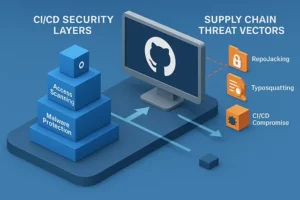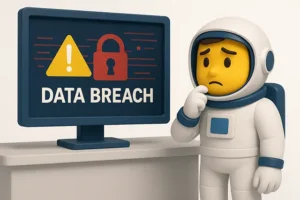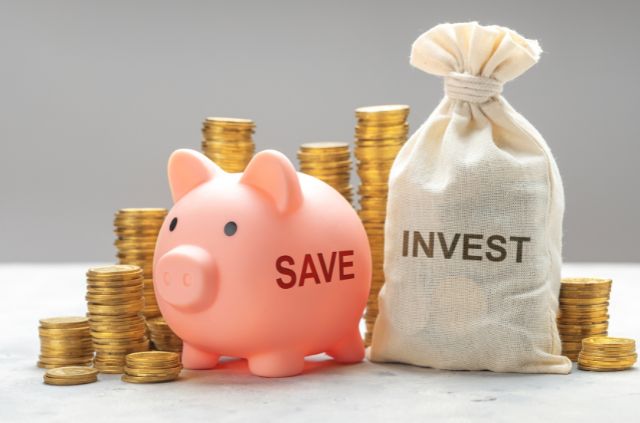Blockchain Technology Revolution: Beyond Bitcoin and Cryptocurrencies

Investing in digital machinations? You must have flirted with the idea of cryptocurrencies or even delved into it. These virtual currencies, spearheaded by Bitcoin, are the most well-known application of blockchain technology. But did you know the impact of this revolutionary technology extends far beyond the realm of cryptocurrencies?
As a form of distributed ledger technology, blockchain has positioned itself as a foundational tool capable of transforming numerous sectors. It’s cited as a potential game-changer in many industries including healthcare, finance, and supply chain. And today, we’re uncovering the transformative potential of blockchain in these sectors, breaking down its application and how it is reshaping operations and enhancing efficiencies.
Table of Contents
Before We Dive In, Here’s A Simple Recap on Blockchain
Relatively new yet incredibly impactful, blockchain refers to a decentralized, transparent, and tamper-resistant database that stores a chain of records (blocks) linked and secured using cryptography. As an immutable ledger, no single party can control it, andentries once made cannot be altered or deleted. This feature makes blockchain a reliable form of technology, with far-reaching implications in a variety of sectors.
- Healthcare: Medical records management, drug traceability, and patient consent management
- Finance: Secure transactions, fraud prevention, and smart contracts
- Supply Chain: Product traceability, real-time tracking, and authentic verification
While blockchain’s influence in cryptocurrencies can’t be undermined, its defining features can resonate with a wider demographic, catalyzing transformations not just in the digital economy, but across a broad spectrum of industries. Let’s delve deeper into how blockchain is innovatively utilized beyond cryptocurrency.
Exploring the Potential of Blockchain in Healthcare
Imagine the healthcare system transformed, a world where medical records are available at the touch of a button, where patient privacy is stringently protected, and where tampering with pharmaceutical supply chains is virtually impossible. Well, you don’t have to imagine for too long as blockchain technology is making such scenarios a reality.
Medical Records and Patient Privacy
With its decentralized and secure design, blockchain offers a new approach to storing and managing health records. By recording patient information on a blockchain, healthcare providers can ensure the data’s integrity and availability. And guess what? You, the patient, hold the key to your encrypted data, ensuring utmost privacy. Now, isn’t that a big leap forward?
Blockchain technology grants patients the control they deserve over their medical records while providing a secure environment that healthcare purposes require.
Pharmaceutical Supply Chains
Counterfeit drugs infiltrating pharmaceutical supply chains is not only a concerning problem in terms of economic loss, but it’s a potential danger to public health. However, blockchain as an anti-counterfeiting tool shows great promise. Traceability is in the DNA of blockchain. Each transaction or ‘block’ gets a timestamp and cannot be altered once recorded. This means if a drug was tampered with or replaced, the blockchain would expose the anomaly. It’s like having a digital watchdog keeping an eye on your medicine supply.
Blockchain tackles counterfeit drugs with its powerful traceability feature, ensuring safety at every step and corner of the pharmaceutical supply chain.
So, while the healthcare industry seems to be taking one step at a time with blockchain adoption, the strides could eventually lead to a revolution. After all, who wouldn’t want a healthcare system that is seamless, secure, and centered around the patient?
Transforming Finance with Blockchain Technology
When you think about areas that have been impacted by blockchain technology, the financial sector likely comes to mind instantly. Cryptocurrencies are, without a doubt, the most well-known application of the technology. You’re probably familiar with Bitcoin and Ethereum, precious fragments of code that have transformed the understanding of money’s value. But the financial sector’s shift towards blockchain technology goes way beyond cryptocurrencies; let’s unpack this further.
The essence of the blockchain technology—the decentralized, transparent ledger system—makes it an irresistible solution for various financial challenges. Let’s take you down the path and show you how.
The magic of Smart Contracts
Smart Contracts are self-executing contracts, the terms of the agreement directly written into the code. Unlike traditional contracts, the execution or enforcement of these “smart” contracts is controlled by code, eliminating the need for a middleman. These autonomous bits of code not only reduce the costs associated with contract enforcement, but they also increase speed and efficiency. In the finance world, this can augment everything from insurance claims to legitimate transactions.
Promoting Financial Inclusion
Blockchain technology has the potential to impact everyone—not only those who inhabit the digital world. An estimated 1.7 billion adults are unbanked globally, that is, without an account at a financial institution or through a mobile money provider. Blockchain technology, due to its decentralized and open nature, has the unique ability to provide low-cost financial services to this population, fostering economic inclusion irrespective of geographic barriers.
Securities Trading: Faster and Cheaper
Selling and buying of securities often involve multiple parties and complex processes, leading to a delay called ‘settlement lag’. With blockchain’s transparent and instantaneous nature comes the promise of reduced settlement times. This characteristic can transform securities trading, making it faster and cost-effective, and perhaps we won’t have to worry about the infamous ‘settlement lag’ in the future.
To sum it all up, beyond the glitz and glamour of cryptocurrencies, blockchain technology’s real beauty lies in its potential to bring about substantial, transformative changes in the financial sector. It’s a world of possibilities, and we’re just getting started.
Revolutionizing Supply Chain Management with Blockchain
Without a doubt, blockchain technology brings a revolutionary potential to supply chain management. Imagine a process where you can trace the entire journey of a product, starting from its raw materials to the finished product in your hands. Fascinating, right? That’s exactly what blockchain does!
Greater Transparency and Traceability
Blockchain provides a shared ledger that’s updated in nearly real-time and accessible to all participants with appropriate permission. This transparency and traceability aspect of blockchain instills greater trust among the participants. You’ll now be easily able to locate any bottlenecks or inefficiencies within your supply chain and address them promptly.
Fraud Prevention
In traditional supply chains, the risk of counterfeit products or fraud is always there. However, blockchain’s immutable nature ensures that each transaction or movement of goods is permanently recorded. So, with blockchain, you can confidently say goodbye to fraudulent activities!
Inventory Management Simplified
Managing inventory is quite a hassle, isn’t it? It’s often time-consuming, and any minor error can cause significant issues. Well, blockchain promises to simplify this complicated process. It enables real-time tracking of inventory, reducing instances of overstocking or stockouts, and greatly enhances supply chain efficiency.
Smart Contract Enabled Supply Chain
Executing agreements manually is both time-consuming and error-prone. Here’s where blockchain’s smart contracts will come to your rescue, automating the agreement execution process. Embedding workflows with these automated agreements can speed up the transaction process, and also ensure the veracity and security of transactions without the need for intermediaries.
So, are you ready to revolutionize your supply chain management with blockchain?
Blockchain’s Impact on Data Security and Privacy
Imagine a world where your personal data is completely secure and where privacy intrusions are virtually non-existent. Sounds refreshing, doesn’t it? This world could become a reality with the use of blockchain technology.
How, you ask? Let’s peel back the layers and take a closer look.
Blockchains are distributed and decentralized digital ledgers that record transactions across multiple computers. This characteristic enhances data security as it makes the system nearly impervious to hackers. In other words, with blockchain, the data isn’t just locked in one place; it’s securely stored throughout the entire chain of blocks.
But that’s not all! Blockchains use cryptographic techniques to ensure the data privacy and accuracy too. Each block contains a cryptographic hash of the previous block, a timestamp, and the transaction data itself. Changing information in one block would require alterations to all subsequent blocks, which would be virtually impossible.
“Blockchain technology offers a level of security and privacy that could revolutionize the way we manage and protect data in the digital age.”
It’s All About Giving Power Back to Individuals
Privacy remains an enormous concern for many internet users. With blockchain, control over personal data could shift back into the hands of the individuals, and away from large corporations and institutions. By using a decentralized system, blockchain could give power back to you in managing and deciding who should have access to your information.
For Example, Consider Voting
Take a simple example, voting. A blockchain system could ensure that votes are accurately recorded and tamper-proof. This kind of system would bring radical transparency to electoral processes. More importantly, it would help to restore faith in the democratic process during a time when many feel their votes may not count.
In conclusion, the use of blockchain for data security and privacy shows significant potential. Whether we’re talking about securing personal information, enhancing voting systems, or empowering individuals, the potential use-cases seem almost limitless.
As we continue to explore and develop this technology, we could craft solutions that are not just safer, but also more equitable and efficient. As we move ahead, let’s bear in mind one central tenet – with great power (like blockchain) comes great responsibility.
Reference : https://consensys.net/blockchain-use-cases/finance/







